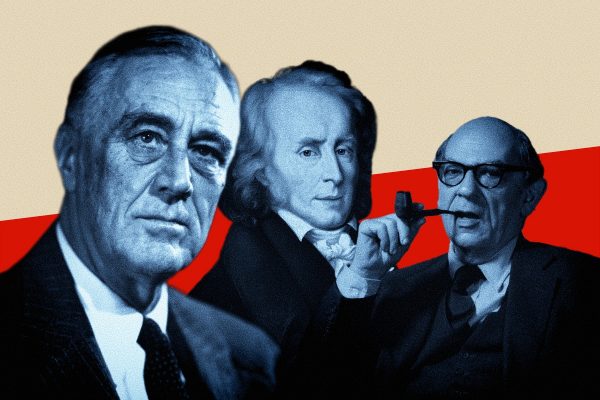I can see the point in Agnes Callard’s observation that being the victim of wrongdoing is often worse for us than the harm done. The question is, even so, why not get over it? Callard thinks that even though the wrong recedes into the past, and even if there has been a sincere effort to make amends, we still have reason to be angry and to want revenge (whether or not we act on that desire). But why should the wrong in the past be eternally present and potent?
Many things happen that affect us and cause strong emotions. I discover wood rot in the window of my house and I am upset, even angry. I arrange to get the window fixed, and the feelings recede. A better paint job can make me think it was all to the good. It would make no sense to find that past event eternally upsetting even though, in a sense, the wood rot, as past, is eternally present. Why does Callard think the example of theft is different? The eternal reason for anger can’t just be about the eternal present of the past. It must be that a wrong was done and apology is inefficacious in mitigating that.
Why might that be? Perhaps it is that the wrong done casts us as a victim. We can passively acquiesce to the bad treatment or wait for the wrongdoer to alter our narrative through apology and redress. Anger, by contrast, reclaims our agency—though at a price. It is a dark thing; surely unwelcome. Recasting it as indignation or righteous resistance doesn’t change that. Whether we act on anger or not, it alters us, makes us worse—not who we would have been except for the wrongdoer’s insult.
Suppose we agree that the issue is about regaining agency. Accepting an apology, though perhaps morally called for, doesn’t put me back in my life’s driver seat. Still, there are options. We could regard the apology as a first step and not a last one: an acknowledgment by the wrongdoer that how the future goes for us is now up to me. Things have to change, I say. There is work to be done. If we do the work, the wrong done remains where it was, but its teeth have been pulled. There’s something to remember (and maybe never forget), but its narrative place in our lives has altered. The past that’s in the present is different.
It is possible that whatever happened cannot be absorbed between us going forward. Perhaps it was too awful. But it isn’t awfulness that Callard is pointing to: it’s just the eternal past wrong in the present. Would Callard embrace the same logic for shame? Am I eternally bound to my own errors? (It is true that I can still activate the distress I felt when I was accused of and embarrassed by a clumsy act at age six, even though I know now that it was something we got over. It seems bizarre to me, not at all appropriate, maybe something to bring to my therapist, that I remain vulnerable to the memory of that past event.)
There is also a point in moral metaphysics here. Callard seems to think moral causality simply tracks natural causality. The moral event just is the natural event. But is that so? If we ask “When does an action or event end?” or “Which effects of an action belong to it?” the two causal orders can give different answers. My agential causality is morally salient even if absent my action the same effect would have occurred by other causes. I think that one of the tasks of morality—its duties, obligations, and responsive practices—is to supply a proprietary overlay on natural causality. There’s reason to think that moral requirement functions as a kind of safe harbor. The untoward effects of morally required actions are not imputable to agents (given due care), whereas untoward effects of wrongful actions are imputable (because the agent on her own authority, not morality, has determined what is to be done).
Once we recognize the possible independence of moral from natural causality, backward moral effects are possible (it’s no harder than coming to see a past event as a first step in an ongoing process). Moral causality can’t change the material event—the thing was stolen on Monday—but we have public vehicles of redress that can negate the change in possession, mark the absence of permission, and block the perpetrator’s authority over my narrative. I am not any longer a victim. It is now up to me whether to count your apology as a step forward. In standing with others, I have been given new powers.
So why might I still be angry? Set aside grown-up anger— indignation and the rest—and go back to where anger first appears. It is hard to imagine anyone angrier than a frustrated infant. Hungry; wet; hurting. Abandoned and alone. Panicked. Then saved: cosseted and returned to peace and love. The child learns to trust, but the body memory that the world can be lost remains. And so the anger. In the Monday theft, the moral injury is a reminder. I am (again) not self-sufficient. I am (again) vulnerable—always and fundamentally. The old anger returns. Infant anger is not directed at an episode: it is the infant in the moment. Regressive anger repeats the experience; it is timeless, a failure of the world. Reason to panic. The infant bites; it isn’t punishment or revenge; she would consume the errant (m)other to become whole once again. This doesn’t set a template for reasonable anger.
Is this a less plausible just-so story than Callard’s? I can’t see why it would be.
And what of Nietzschean ressentiment? Is it supporting evidence for Callard’s idea of an anger-and-revenge-centric morality. What Nietzsche uncovers is the fear of the oppressed victim turned outward and into anger by priests who gain power by inverting the natural order of things, calling it morality. The believers learn to be oppressors too—of themselves. They could stay in this posture, waiting for someone or something to redeem them. We needn’t dispute this history. Must it be true of us? We could instead together enact a less reactive moral order, one in which we add to our powers a “normative skin” that registers and sublimates the old anger, offering in its bloody stead a place in a social world that preserves dignity. We are injured; we pick us up; it is our story now; no reason to panic.
At the end, Callard wants us to see that “we can’t be good in a bad world”—that it is impossible to respond rightly to being treated wrongly because, if we were honest, we’d admit that we want blood.
We want to turn the principle of wrongful action that victimized us on our victimizer. And two wrongs don’t make a right.
There is truth in the observation that a bad world can make good action feel out of reach. What are we to do when kindness becomes an exploitable vulnerability or when our trust is consistently betrayed? In a bad world we feel passive, powerless, victims. Who wouldn’t be angry? On Callard’s picture, in teaching me eternal anger, the bad world owns me. It forever gives me reason to respond in kind. But why accept that? Surely we can build something that gets us past the eternal return of anger. My reason not to trust a past wrongdoer is not a reason to give up on trust.
Morality may have a dark history in primal anger and guilt that is hard to shed. But it is possible that the role of the dark side is to make vivid our wholeness in attachment to others, to give us confidence that a wrong done to us is not the end of the world. We are not alone. This is a hopeful view, not a timid one.








